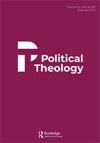Partition and/as Political Theology: Art, Resistance, and Peacebuilding in India and Northern Ireland
IF 0.4
0 RELIGION
引用次数: 0
Abstract
2021–2022 marked two major (post)colonial anniversaries: the centenary of the Partition of Ireland in May 1921 and the 75th anniversary of the Partition of India/Pakistan in August 1947. As Britain’s first and largest colonies, respectively, both Ireland and India have been home to longstanding anticolonial movements. On the island of Ireland, Partition turned out to be a step towards the Republic of Ireland’s eventual achievement of independence (Northern Ireland, by contrast, remains a part of the United Kingdom). In the case of India and Pakistan, it was coterminous with independence itself. In both cases, Partition’s specter continues to haunt the political landscape. In the Irish context, divisions persist between those who seek a united Ireland and those who are loyal to the British Crown. Almost twenty-five years since the signing of the Good Friday/Belfast Agreement, which formally brought to an end the Troubles (the thirty year violent conflict between Northern Ireland’s [predominately Catholic] Irish nationalist and [predominantly Protestant] British unionist communities), the implementation of Brexit has brought renewed focus—and renewed tension—to the relationship between the Republic, Northern Ireland, and the UK. In the case of South Asia, the Partition resulted in mass killings, sexual violence, and plunder, accompanied by waves of forced migrations: between 11 and 18 million refugees are estimated to have moved between India and Pakistan in its aftermath. British colonial policies fostered sectarian divides in both Ireland and India. In British-controlled India, for example, the Empire actively fomented polarization between religious communities in order to project itself as a transcendental umpire. The legacies of colonial divide et impera still shape the region today, fueling right-wing sectarian nationalisms. Comparable to early modern European confessional state-building and civil wars, these twentieth-century Partitions can be seen to demonstrate the links between modern centralized state sovereignty and what is often framed as “religious violence.” Human sovereign violence draws legitimacy from divine violence, as the human state moulds itself in the image of the divine lawgiver. We argue that Partition embodies, par excellence, the violence of colonial political theology.分裂和/作为政治神学:印度和北爱尔兰的艺术、抵抗和和平建设
2021-2022年是两个重要的(后)殖民纪念日:1921年5月爱尔兰分治100周年和1947年8月印度/巴基斯坦分治75周年。作为英国的第一个和最大的殖民地,爱尔兰和印度都是长期反殖民运动的发源地。在爱尔兰岛上,分裂被证明是朝着爱尔兰共和国最终实现独立迈出的一步(相比之下,北爱尔兰仍然是联合王国的一部分)。在印度和巴基斯坦的情况下,它与独立本身有关。在这两种情况下,分治的幽灵继续困扰着政治格局。在爱尔兰的情况下,那些寻求统一爱尔兰的人和那些忠于英国王室的人之间存在分歧。《耶稣受难节/贝尔法斯特协议》签署近25年来,该协议正式结束了北爱尔兰问题(北爱尔兰(主要是天主教徒)的爱尔兰民族主义者和(主要是新教徒)的英国联合主义社区之间长达30年的暴力冲突),英国脱欧的实施给共和国、北爱尔兰和英国之间的关系带来了新的关注和新的紧张。就南亚而言,印巴分治导致了大规模屠杀、性暴力和掠夺,并伴随着一波又一波的被迫移民:据估计,在分治之后,有1100万至1800万难民在印度和巴基斯坦之间流动。英国的殖民政策助长了爱尔兰和印度的宗派分歧。例如,在英属印度,帝国积极煽动宗教团体之间的两极分化,以表现自己是一个超然的裁判。殖民分裂和帝国主义的遗产今天仍然影响着该地区,助长了右翼宗派民族主义。与早期现代欧洲的忏悔国家建设和内战相比,这些20世纪的分裂可以被看作是现代中央集权国家主权与经常被框定为“宗教暴力”之间的联系。人类主权暴力从神的暴力中获得合法性,因为人类国家以神的立法者的形象塑造自己。我们认为,《分治》最突出地体现了殖民政治神学的暴力。
本文章由计算机程序翻译,如有差异,请以英文原文为准。
求助全文
约1分钟内获得全文
求助全文

 求助内容:
求助内容: 应助结果提醒方式:
应助结果提醒方式:


